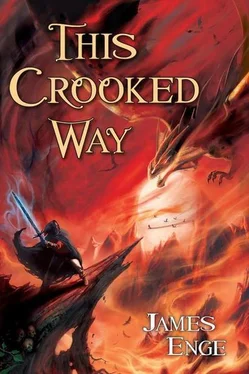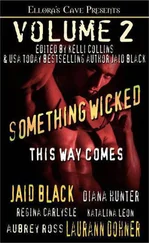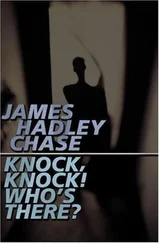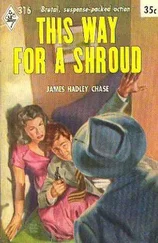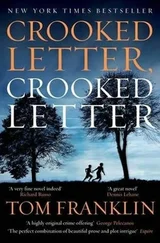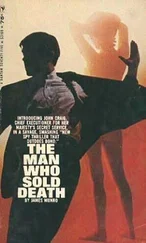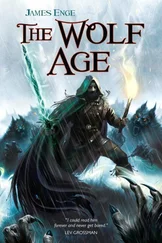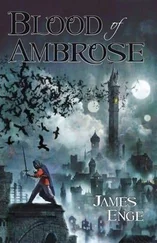"So why stay here?" I asked Morlock after the first of these regular visits.
He grunted at me. He actually does that: you say something to him like a person, and he just makes a sort of noise.
Anyway, his latest gimmick was glass. He'd noticed that some types of glass seemed to slow down light, so he made glass that slowed it down even more-incredibly slow. There were chunks of it scattered around the house, still holding the luminous image of a leaf or a sunset or a face that had been trapped in them days ago. Bann, my eldest (surviving), was excited by this and got Morlock to teach him how to do it: his idea was that you could create a block of glass that would slow down the light passing through it to a full stop, creating perfect and permanent images of things.
Meanwhile Morlock's mind was moving in a different direction. One morning he appeared at breakfast holding a big lens of gray glass and wearing a half smile that, for him, was a shout of triumph.
"Um," my brother Roble said, peering through the lens. "This is maybe the murkiest piece of glass I've ever seen."
"Keep an eye on Naeli," Morlock suggested.
Roble swivelled to face me and I saw his brown eye quite clearly through the glass.
"Naeli, would you wave your hand?" Morlock said.
Exasperated, I flipped him a gesture I'd learned among the Bargainers.
"Wait a second!" Roble said. "She moved before you asked her! This thing sees into the future!"
"Yes."
My sons, Bann and Thend, and even my daughter, Fasra (who hadn't been showing much interest in anything since that terrible night when Stador died), looked intrigued and swarmed behind Roble, peering at the glass over his shoulder.
"It's so murky-I can hardly see anything," Bann complained.
By now Roble was holding the lens up high so they could peer through it. I caught a glimpse of my children, my surviving children, a corsage of expectant quizzical looks in the bright glass.
"I don't know what you mean," I said. "I can see you all clearly."
"Your mouth moved before you spoke!" Thend called. I heard his voice before I saw his lips move. Then I understood the glass worked two ways, and I was seeing a few seconds into the past. I wondered if a lens could be built for me to somehow see Stador again, alive and well and happy. And I wondered if I would dare to look through it if I held it in my hand.
"How does it work?" Bann asked.
If you want to get Morlock to run his mouth, ask him a question like that. They started talking about a bunch of things I neither understood nor wanted to. But in the end Bann said, "But why is the glass so cloudy?"
"The future hasn't happened yet," I said impatiently. "The odds of you seeing any particular event are very low."
Silence. If you want to shock your children, show them you have a little intelligence. "Flip the glass," I suggested. "The other side looks into the past and everything is very clear. All those events are fixed."
They did, and now I was looking into the lens of the future. Seen through the glass, my children's healthy brown skins wore the grayish sheen of death. Their eyes were almost invisible, shadowed by uncertainty. I looked away. Someday, they would die, and I would die, and everyone would die, and I couldn't blame it all on Morlock. But somehow, just then, I wanted to.
Now Bann was holding the glass and walking around the room. "I see furniture clearer than people," he said, "but the walls and floor and ceiling are clearer than the furniture. Is that because their positions are more certain in the future?"
"Exactly," Morlock said approvingly.
Bann passed the glass to Thend and stared off at nothing. After a moment or two he turned to Morlock and said, "Would the positions of some people be more certain than others? A watchman who has a fixed route at a fixed time, or …?"
Morlock shrugged and opened his hands. He seemed to expect we would know what that meant.
"Let's go down to the street and check!" Thend shouted, and ran out the door. We all trailed after him.
The street was full of passersby. We were on the edge of the city of Narkunden, but Narkunden's sister city Aflraun was right across the nearby Nat River, and when the city-states weren't actually at war, there was a brisk traffic back and forth across the bridges. I didn't enter into the discussion about whether some people were easier to see than others, because I really didn't give a damn. I'd only followed the others out to make sure that Morlock didn't kill one of my children by accident in the street.
Oh, you think I'm exaggerating? All right: so I'm in the street standing next to Morlock as he holds the lens. And he's flipping it back and forth to get the contrast between a-few-seconds-past and a-few-seconds-future. While he's gazing through the past lens I look idly past him and see someone standing behind him. In the real world, this other guy's just standing there, making a kind of shrugging motion. In the future glass, he's stabbing Morlock in the neck.
I punched him. No, not Morlock, though I kind of wanted to: the other guy, the guy about to stab him. I hit him hard, right on an eye, and the eye burst like a rotten grape, and some kind of darkish foul fluid that wasn't blood poured out.
Roble had seen it too, and Morlock instantly figured out what was happening (whatever he is, he isn't stupid), and they each grabbed one of the guy's arms. He had a knife in each hand, and I shouted to the children to get back in the house. They looked at me uncertainly, as if they were about to refuse, but then they looked at me closer and decided there might be something scarier in the street than a guy with two knives and they ran back inside. I didn't need any glass to see the future: the next time I gave them an order like that they might not obey it. But that was tomorrow's problem; I turned back to today's, which, like most of my problems, involved Morlock.
He and Roble each had one of the assassin's arms in both of their hands. I stood free, ready to help if needed or take the guy down if he wriggled loose (as he was struggling to do).
Suddenly the assassin stood still. Maybe he realized that he just wasn't going to get away. There was something weird about his face, apart from the rotten-smelling goo leaking over it. It was totally expressionless, even when he was fighting, like he wasn't really there somehow. The pale features had a blue-green cast, like a corpse.
"Let me go," he said in a voice as dead as his face. "I will self-bind not to harm you or yours."
"No," said Morlock.
"I can buy my freedom with knowledge," said the man with the smashed eye. "I can tell you so many things, so many secrets."
"I know who sent you," Morlock said coldly. "Shall I tell you a secret? Demons are not immortal."
The man with the broken eye screamed. Except, I guess, maybe he wasn't a man. He screamed and screamed. Then he fell limp to the ground, and the knives clattered on the stones of the street.
"Street-killings, even in self-defense, are an implicit violation of your residency contract," a scandalized voice remarked.
I groaned. Of course! The city government sent this weedy pale fellow, Glemmurn, once a month to inspect our books and make sure that we weren't spending more money than we actually earned in the city. And today, of all days, was the date for our inspection.
"We didn't kill him," Roble observed. "All we did was defend ourselves when he attacked us. And in fact-this body's been dead for some time: give it a niff."
Glemmurn, his pale face greenish with horror, stepped toward the corpse with the broken eye, took one whiff of the air surrounding it, and staggered backward. "Savage Triumphator!" he groaned. "An unregistered zombie!"
"Don't worry," I said. (The poor thrept seemed really horrified.) "It's dead, or dezombied, or whatever you call it."
Читать дальше
